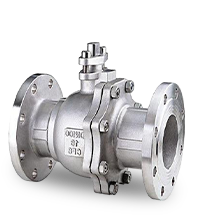Finding Reliable Suppliers for 12-Inch Flanges in Your Industrial Projects and Applications
Exploring the Market for 12-Inch Flange Suppliers
In the realm of manufacturing and construction, flanges play a crucial role in connecting pipes, valves, pumps, and other equipment to form a piping system. Among various sizes available, the 12-inch flange has become increasingly significant in several industries, including oil and gas, water treatment, and chemical processing. This article delves into the landscape of 12-inch flange suppliers, highlighting their importance, types, and considerations when choosing a supplier.
Understanding Flanges
Flanges are mechanical components that provide a reliable way to connect different parts of a piping system. They come in various sizes, materials, and specifications, catering to diverse industrial needs. A 12-inch flange, specifically, indicates that the size of the flange matches a 12-inch nominal pipe size, which is commonly used in large-scale applications due to the substantial flow rates they handle.
Types of 12-Inch Flanges
There are several types of 12-inch flanges available in the market, including
1. Weld Neck Flanges These flanges have a long tapered neck, which makes them ideal for high-pressure systems. They are welded to the pipe, ensuring a smooth transition and reducing material stress.
2. Slip-On Flanges Easier to install, these flanges slip over the pipe and are welded in place. They are suitable for low-pressure applications and provide flexibility in assembly.
3. Blind Flanges Used to close the end of a piping system, blind flanges are essential for testing and maintenance. They prevent leakage and provide access points for future connections.
Choosing the Right Supplier
12 inch flange suppliers

When searching for 12-inch flange suppliers, several key factors should be considered
1. Quality Standards It is vital to choose a supplier that adheres to strict quality standards, such as ISO certification. This ensures that the flanges meet industry specifications and are capable of withstanding the demands of your particular application.
2. Material Selection Flanges can be made of various materials, including carbon steel, stainless steel, and plastic. Suppliers should offer a range of materials to suit different environmental conditions and fluid types.
3. Customization Options Every project has unique requirements. A reliable supplier should offer customization options, allowing clients to specify dimensions, hole patterns, and finishes.
4. Delivery Time and Reliability Timely delivery can greatly impact project timelines. Suppliers should have a proven track record of reliability and efficiency in their supply chain operations.
5. After-Sales Support Post-purchase support, including installation guidelines and customer service, is crucial. A good supplier will provide assistance in troubleshooting and ensure client satisfaction.
The Future of the Flange Market
As industries continue to evolve, the demand for various sizes of flanges, including the 12-inch variant, is expected to grow. Suppliers that can offer innovative solutions, such as advanced materials and sustainable practices, will be well-positioned to lead the market. The ongoing push for efficiency and safety in piping systems will drive suppliers to continuously improve their manufacturing processes and adapt to new industry standards.
Conclusion
The market for 12-inch flanges is integral to various industrial applications. Choosing the right supplier can significantly impact project outcomes. By focusing on quality, material selection, customization, reliability, and after-sales support, buyers can ensure they source the best possible flanges for their needs. As industries advance, the suppliers that embrace innovation and sustainability will ultimately thrive in this competitive landscape.
-
The Key to Fluid Control: Exploring the Advantages of Ball Valves in Industrial SystemsNewsJul.09,2025
-
The Versatile World of 1, 2, and 3 Piece Ball ValvesNewsJul.09,2025
-
Stainless Steel Ball Valves: The Ideal Choice for Efficient Flow ControlNewsJul.09,2025
-
Optimizing Fluid Control with Ball Float ValvesNewsJul.09,2025
-
Manual Gate Valves: Essential for Control and EfficiencyNewsJul.09,2025
-
Everything You Need to Know About Butterfly ValvesNewsJul.09,2025
-
The Versatility of Wafer Type Butterfly ValvesNewsJul.08,2025




